Are you looking to create a clear and effective sales commission agreement? Crafting this document is crucial for outlining expectations and ensuring both parties benefit from the sales process. In the world of sales, having a well-defined commission structure can motivate your team and drive performance. Keep reading to discover our tailored letter template that will help you lay a solid foundation for your agreement!

Parties Involved
A sales commission agreement is a formal document outlining the terms of compensation for sales representatives. Key entities in this agreement include the Company (often a corporation like Acme Corp.), the Sales Representative (individual or entity selling products/services), and the Commission Structure that details the percentage (typically ranging from 5% to 20%) of sales attributed to the representative. This document may also reference specific products or services (e.g., digital marketing services, software sales) and performance metrics (like quarterly sales targets) to measure effectiveness. Clear definitions of territory (geographic area in which sales activities are conducted) and duration (the contractual timeline, often one year) are important elements as well. Proper specification of payment terms (including frequency, methods, and conditions) ensures mutual understanding between parties involved.
Commission Structure
A sales commission agreement outlines the commission structure for sales representatives within a company, specifying key details such as rates, payment schedules, and performance milestones. Commission rates often vary based on factors such as product category, sales volume, and territory, offering both fixed percentages and tiered incentives. For example, a standard commission rate might be 10% for initial sales but increase to 15% for exceeding quarterly targets of $100,000 in revenue. Payments are usually made monthly, requiring completion of a commission report detailing sales activities. The agreement may also include provisions for bonuses tied to specific events like product launches or seasonal sales spikes, further incentivizing performance and driving revenue growth for the company.
Payment Terms
A sales commission agreement outlines the payment terms, detailing the compensation structure for sales representatives. Commission rates typically range between 5% and 20% of total sales revenue, depending on the industry and product type. Payment schedules can vary, with monthly, bi-weekly, or quarterly disbursements being common, depending on the agreed-upon terms. Specific milestones may dictate when commissions are earned, such as upon reaching sales targets (e.g., $50,000 in sales) or after invoice payment by clients. Clarity regarding deductions, such as returns or chargebacks, is essential for both parties. The inclusion of performance metrics linked to commission increases or bonus incentives can further motivate sales personnel to exceed targets. Additionally, termination clauses can specify the handling of unpaid commissions if a sales representative leaves the company under certain conditions.
Duration and Termination
In a sales commission agreement, the duration typically specifies the length of the contract, often ranging from one year to multiple years depending on business needs. For instance, a one-year term may allow for adjustments based on annual performance reviews. Terms of termination outline conditions under which either party can end the agreement, including specific circumstances such as breach of contract, failure to meet sales targets, or changes in company structure. A standard notice period, often 30 to 90 days, should be included to ensure both parties have ample time to prepare for the conclusion of the agreement. This section ensures clear expectations regarding the longevity and potential cessation of the working relationship, fundamentally protecting the interests of both the employer and the salesperson.
Confidentiality and Non-Compete Clause
A sales commission agreement serves as a vital document for businesses, outlining the terms related to sales compensation. The confidentiality clause within this agreement protects sensitive information, ensuring that sales representatives do not disclose trade secrets, client lists, or pricing strategies (often crucial for competitive advantage) to third parties. This clause typically specifies the duration of confidentiality, commonly ranging from one to five years post-termination. Meanwhile, the non-compete clause restricts sales representatives from engaging in similar business activities within a specified geographic location (such as within a 50-mile radius) and time frame (often between six months to two years) after leaving the company. This provision helps safeguard the organization's interests against potential market poaching by former employees.
Letter Template For Sales Commission Agreement Samples
Letter template of Sales Commission Agreement for Independent Contractors
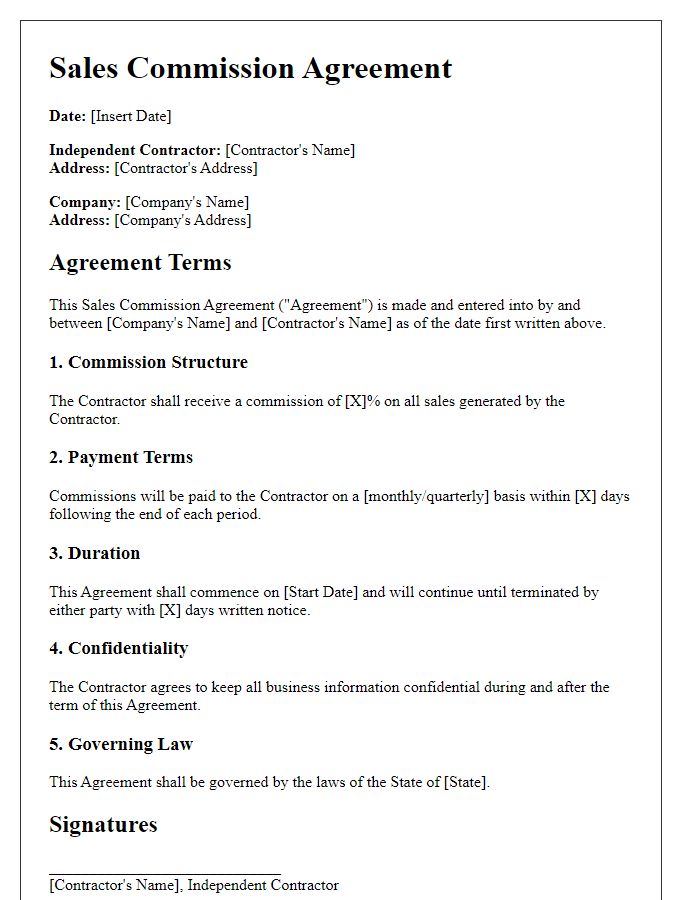
Letter template of Sales Commission Agreement for Freelance Sales Representatives
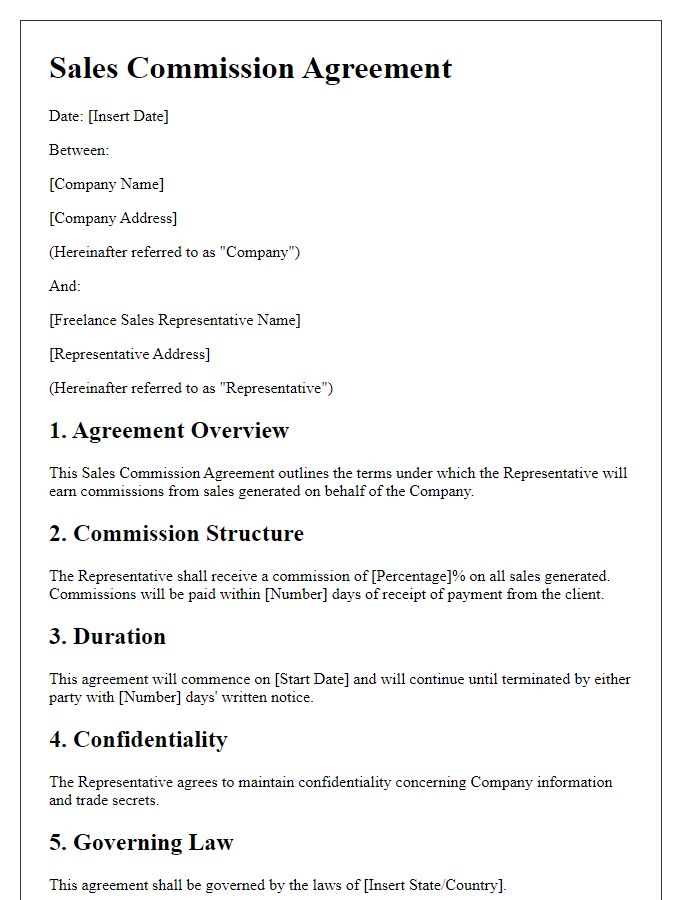
Letter template of Sales Commission Agreement for Online Sales Platforms
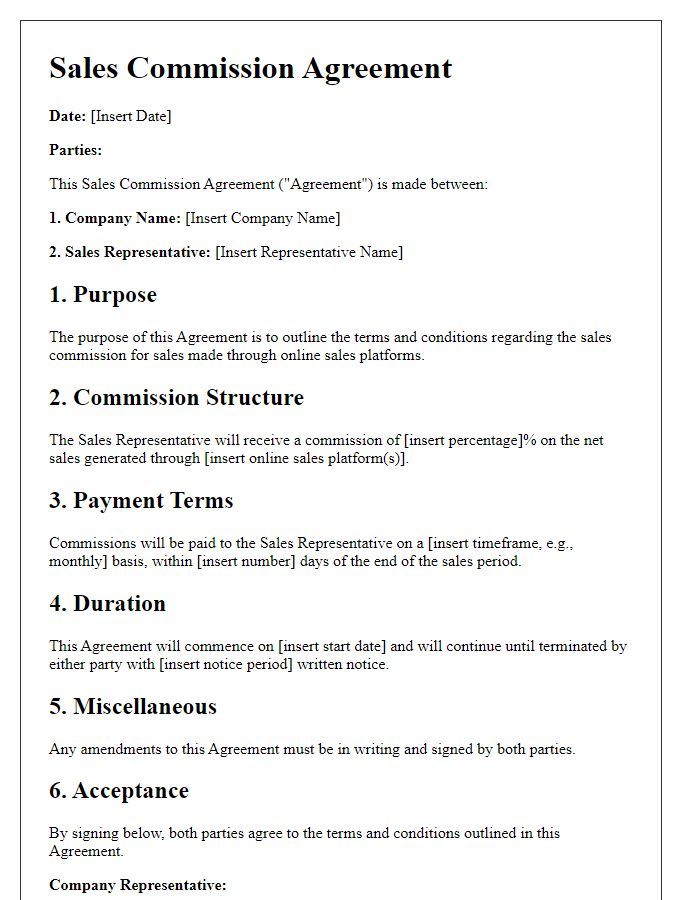

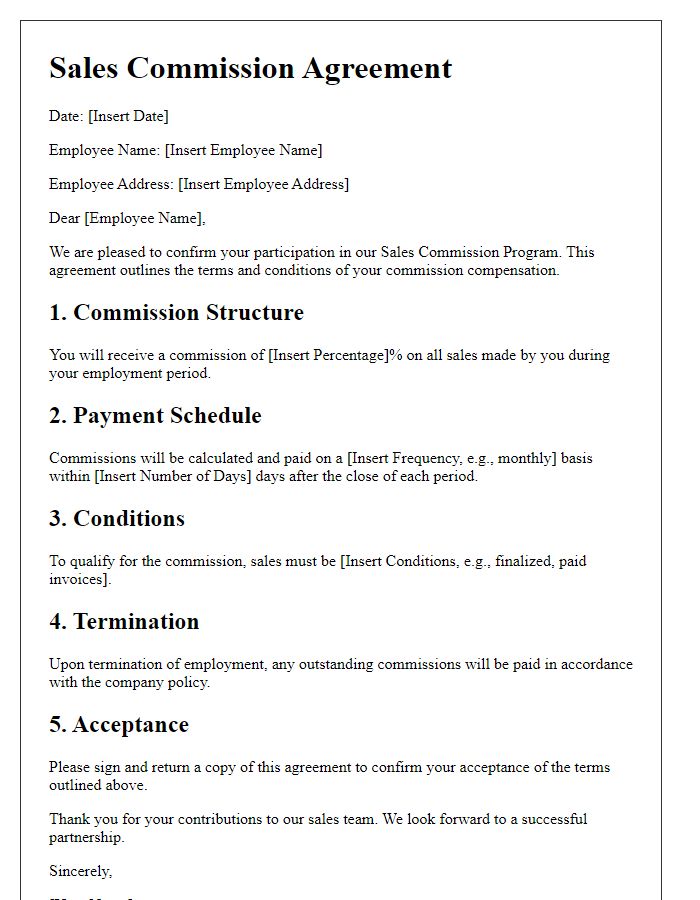
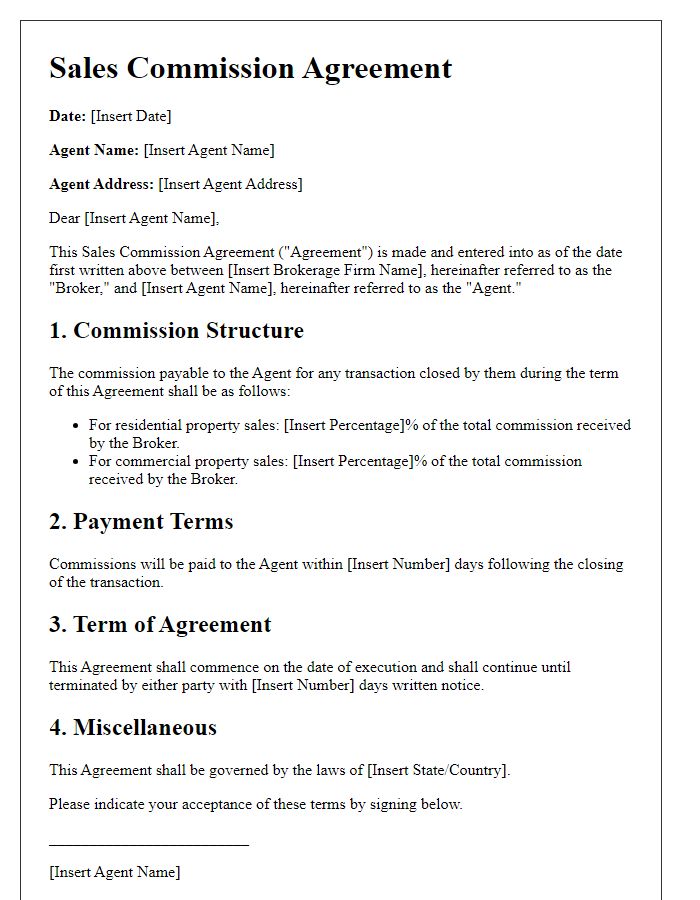
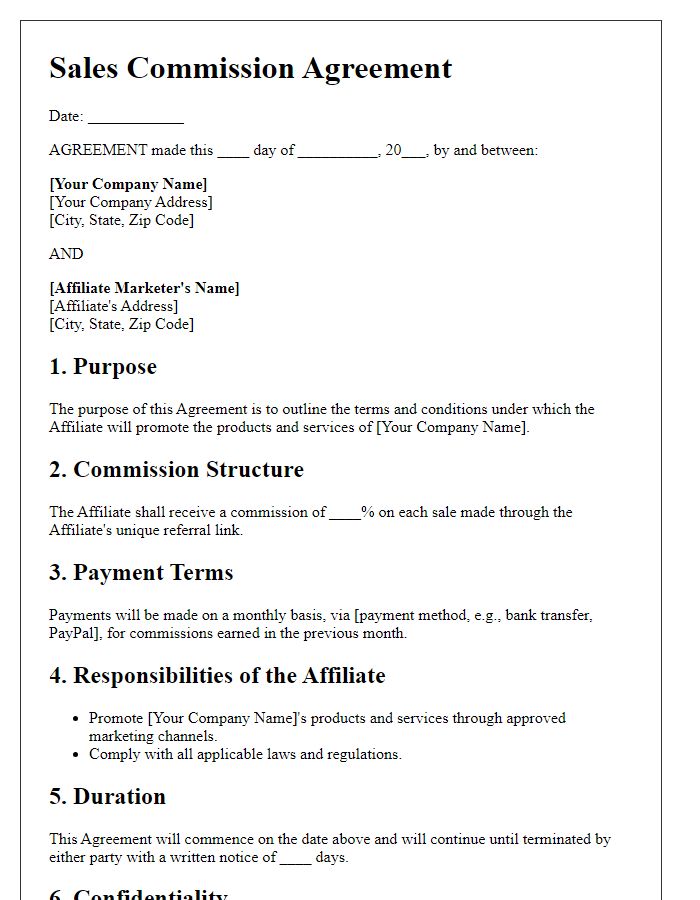
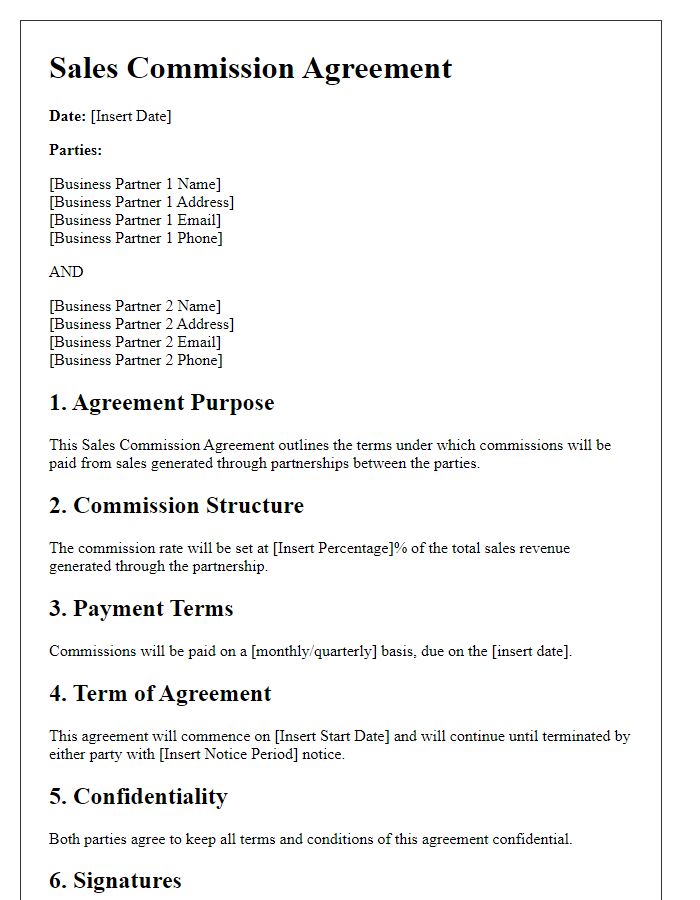
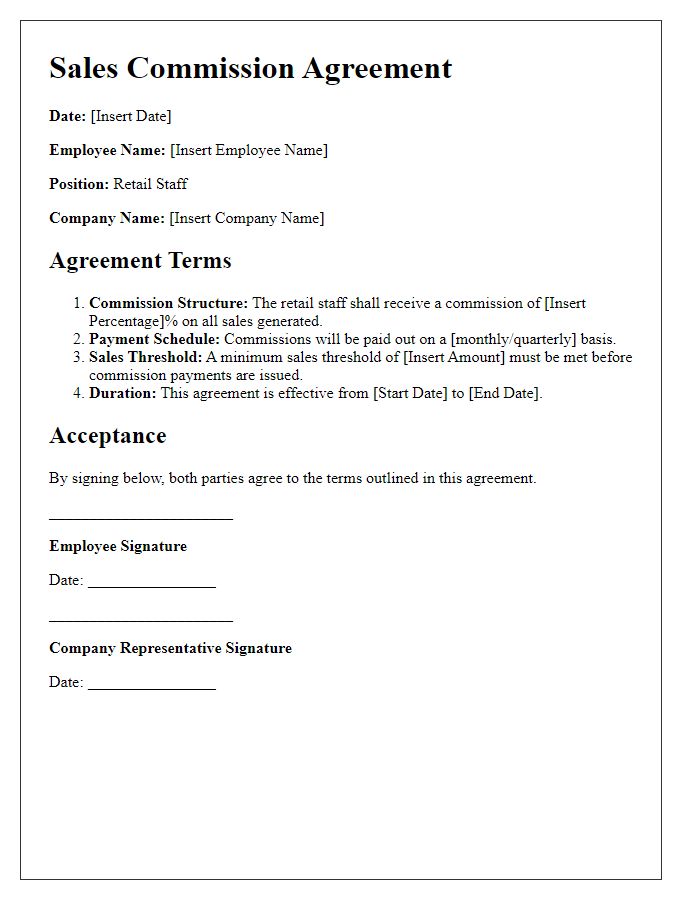
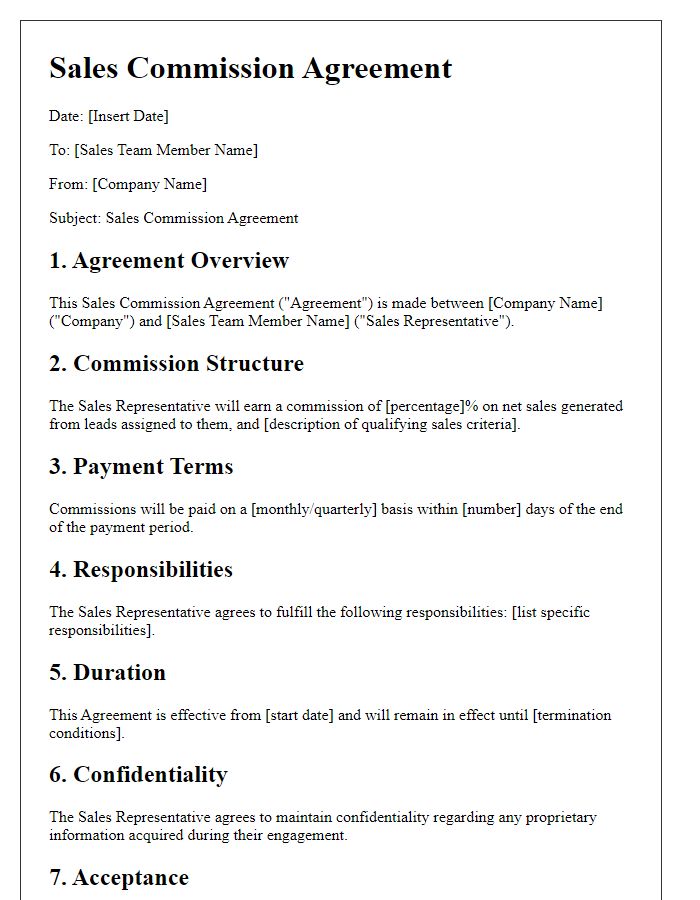
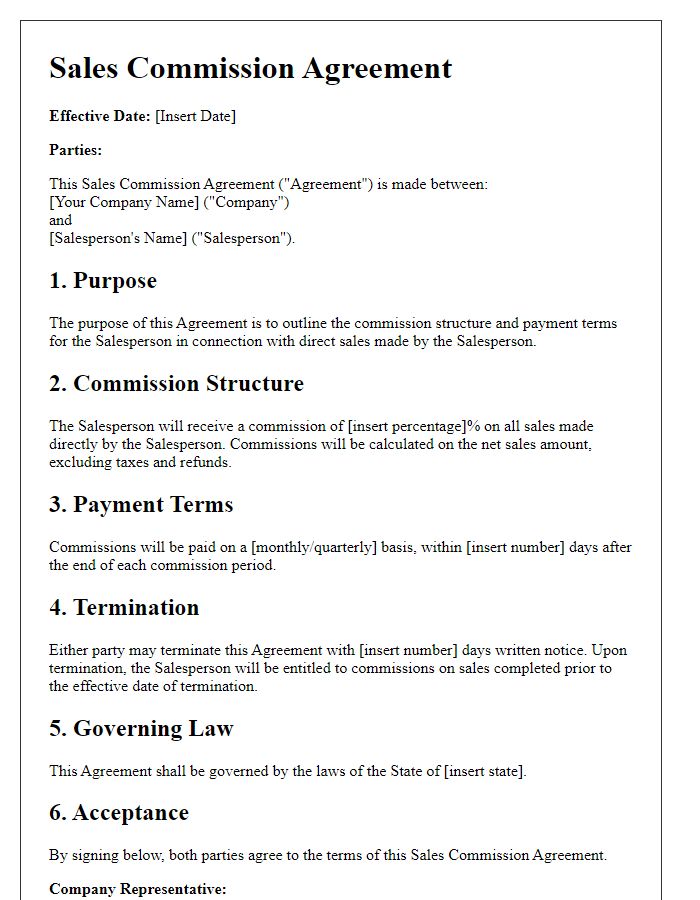


Comments